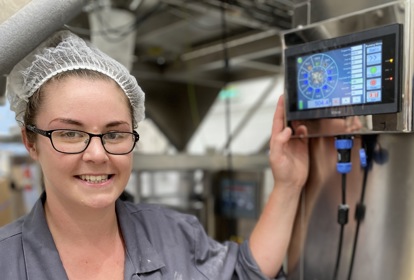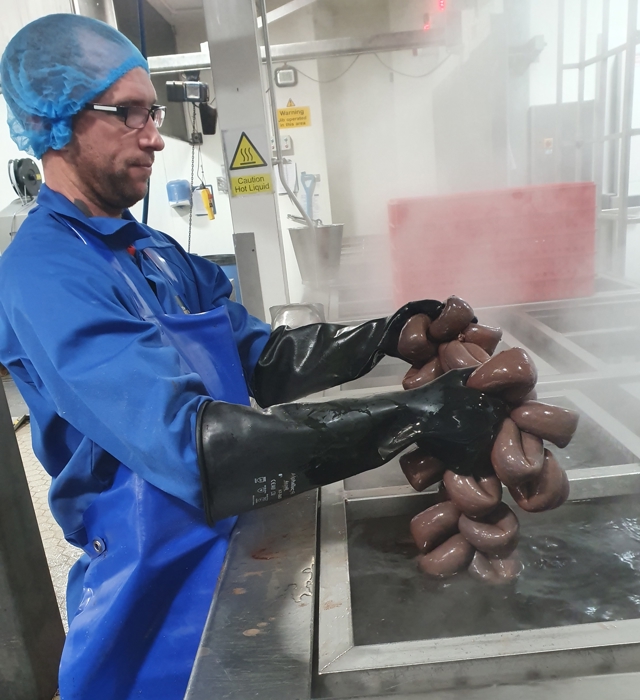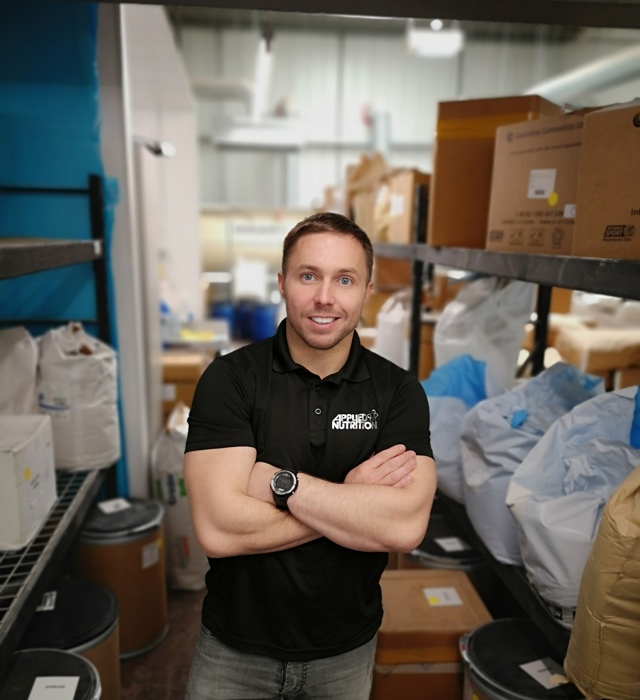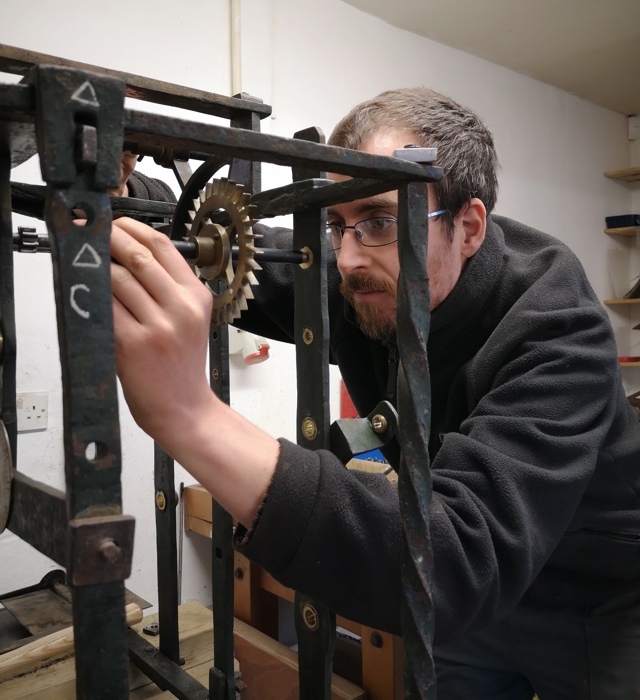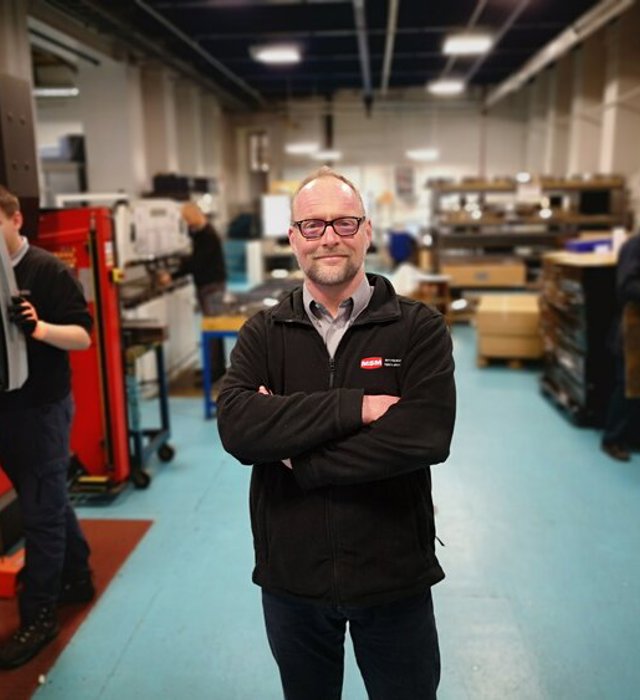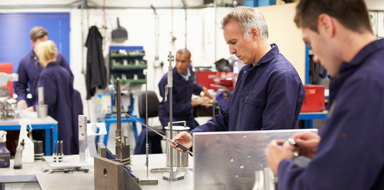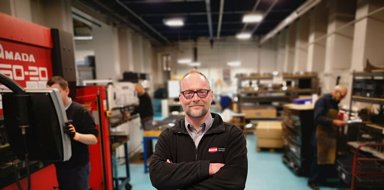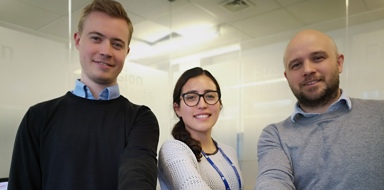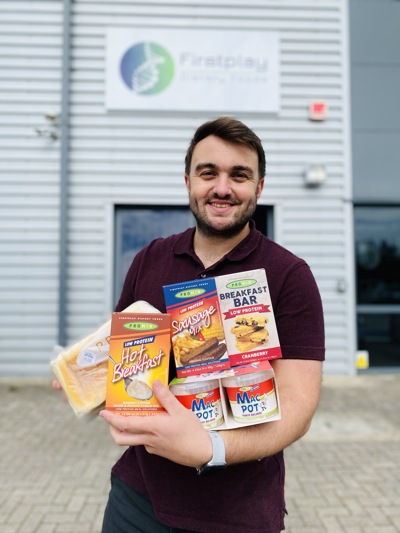
An independent specialist food manufacturer with global ambitions has increased production capacity 10-fold after investing in automation technology with the support of Made Smarter.
Firstplay Dietary Foods, based in Stockport, makes a range of low protein products for people with Phenylketonuria (PKU) and other metabolic conditions which leaves people unable to eat protein without risking brain damage.
With a growing international demand from patients and dieticians, due to the increased number of countries delivering newborn screening, the business has invested £120,000 in new digital machinery, increasing its blending capacity, while replacing a manual weighing and packing process with automation.
As a result, the business has increased production capacity 10-fold, reduced human error and waste, and is forecast to increase turnover by 30%.
In addition, two operators are now focussed on more value-add activities such as sales and complex packing tasks.
Case Study - FirstPlay Dietary FoodsMade Smarter’s support has been transformational to our business. By replacing a manual low-skilled task with automation, we are able to do much more with the resources we have, as well as upskilling our existing staff, which to a small business is extremely valuable.
Tom Fletcher, Managing Director
Firstplay was established in 1993 by Steve and Linda Fletcher to help people living with PKU, an inborn error of metabolism which affects roughly 1 in 10,000 people in the UK.
Over the decades the business has grown steadily, innovating its product range to include dried pasta, flavoured pasta sachets, breads, baking mixes, snacks and soups, for an increasing global market.
With ambitions to target emerging markets in China, the Middle East and America, Firstplay needed to address its manufacturing productivity and efficiency challenges.
A key bottleneck in the production process was the manual weighing and packing of certain products.
“We had two full-time staff performing that role. While they were very fast and efficient at what they did, they were limited to a certain productivity of about 600 packets per day, and occasionally there would be errors and waste.
“The motivator for us, as with many SMEs, was to do more with what we have got, and that means using our small team of 12 in the most efficient way and using their skills on much higher-value tasks.”
With support from Made Smarter, Firstplay invested in a powder packaging machine. The tech includes an automated multi-head weigher and powder filler, which loads the product through a hopper, digitally weighs and corrects the amount of product, and then dispenses and seals it into a bag before delivering it for boxing.
The digital machinery also introduced a live data feed, giving management real-time overview of variables such as the running speed of the equipment, total giveaway, and average weights over the course of a shift.
The outcome has been transformative, increasing the number of sachets it can produce from 600 per day to 6,000 sachets per day. This is forecast to increase productivity by a multiple of 10 across the year.
Digital process control means that packets are more consistently filled, improving quality and reducing waste, both in time and in packaging materials.
The machine also offers more flexibility as it can be adapted to pack different packaging types including pillow fill pouches, creating the capacity for new products, new markets and the opportunity to take on packing contracts.
The data the machine generates will allow more efficient production planning, allowing an increase in batch sizes, and a reduction in the number of deliveries to and from the factory, as more product will be stored in distributors’ warehouses.
The two staff who previously performed the task are now involved in more complex tasks.
With a roadmap to digital transformation in hand, Firstplay has a series of plans including data and systems integration.
One project is to link its new machinery with a barcode scanning system for stock control, while another involves connected business and production software for better data analytics to improve production efficiency.
Tom added: “Our growth has been organic with only occasional investment to update our production processes. Our partnership with Made Smarter changes that. We have a long-term strategy and a digital roadmap to follow to achieve those goals. My only wish is that we had done it sooner.”


